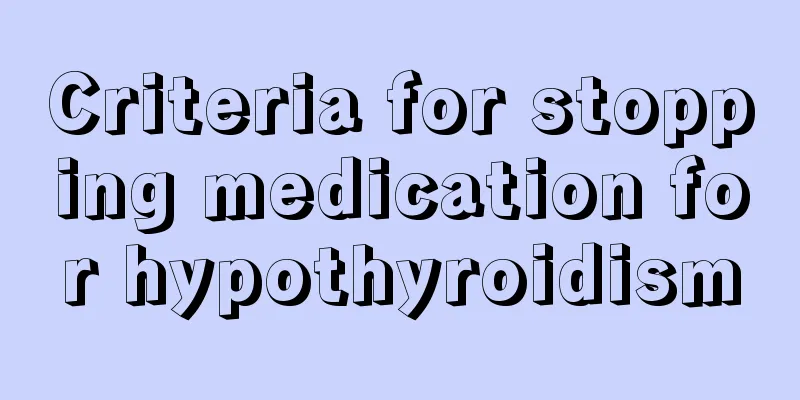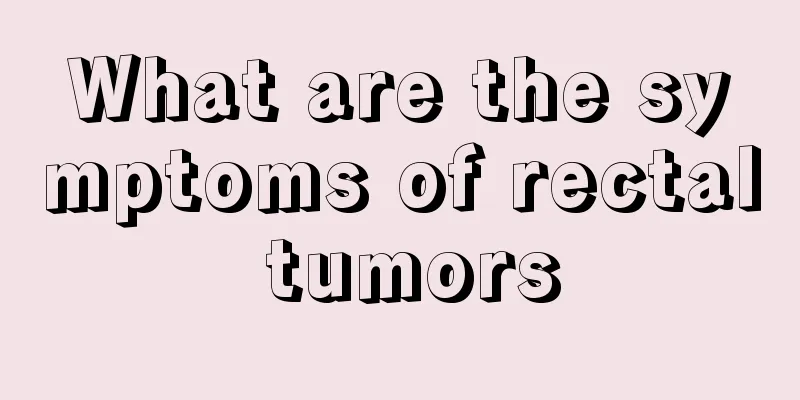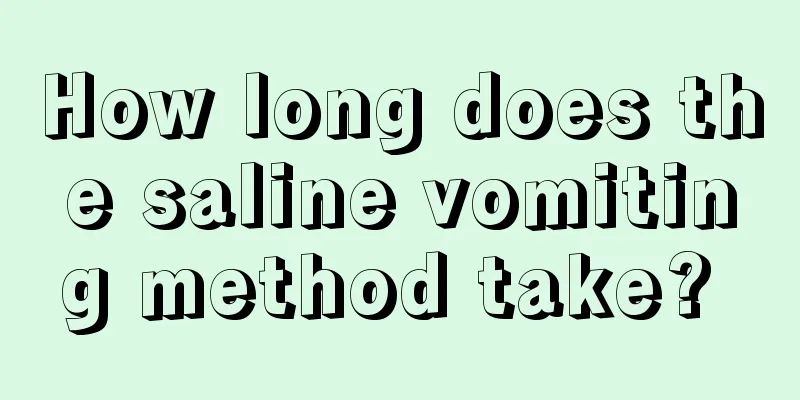Criteria for stopping medication for hypothyroidism

|
The incidence of hypothyroidism in daily life is getting higher and higher, and it is very common among all kinds of people. If the situation is not particularly serious, drug treatment will generally be chosen. However, drugs for treating hypothyroidism cannot be stopped casually, because this is not conducive to the stable control of the disease and may even induce a series of diseases. Therefore, it is necessary to understand the standards for stopping hypothyroidism. 1. Criteria for stopping medication for hypothyroidism If it is persistent hypothyroidism, continuous Euthyrox treatment is generally required. Currently, normal thyroid function is normal when taking medication. Once the medication is stopped, hypothyroidism may reoccur. It is recommended to continue to apply. 2. People often make several mistakes about hypothyroidism Myth 1: Does “subclinical hypothyroidism” belong to “hypothyroidism”? The so-called "subclinical hypothyroidism" refers to a situation where serum thyroid hormone (T4, T3, FT4, FT3) levels are normal, while thyroid stimulating hormone (TSH) is elevated. Hypothyroidism is a systemic disease caused by insufficient synthesis and physiological effects of thyroid hormones. Subclinical hypothyroidism does not belong to "hypothyroidism" because the thyroid hormone level is within the normal range. Myth 2: Does “subclinical hypothyroidism” require no treatment? "Subclinical hypothyroidism" is a transitional state between normal and hypothyroidism. If no intervention is given, approximately 5% to 15% of "subclinical hypothyroidism" will develop into "clinical hypothyroidism" each year. Whether subclinical hypothyroidism needs treatment should be determined based on individual needs and should be treated differently. It is now recognized that the following patients with subclinical hypothyroidism require treatment: ①TSH>10 mIU/L; ② Combined with goiter; ③Cholesterol increased significantly; ④Women who are preparing to become pregnant or are pregnant. However, replacement therapy is not recommended for patients with subclinical hypothyroidism and coronary heart disease. Myth 3: Can I stop taking the medicine after hypothyroidism is corrected? There are many causes of hypothyroidism, such as chronic lymphocytic thyroiditis, thyroid surgery or radiotherapy, overdose of antithyroid drugs, iodine deficiency, the hypothyroid stage of subacute thyroiditis, etc. Among them, most hypothyroidism (such as Hashimoto's thyroiditis, thyroid surgery or radiotherapy) is permanent and requires lifelong medication. Only a small number of hypothyroidism (such as subacute thyroiditis, drug-induced hypothyroidism or iodine deficiency hypothyroidism) is temporary and can be cured after treatment without the need for lifelong medication. Myth 4: Are the control standards for hypothyroidism during pregnancy the same as those for ordinary people? The normal range of serum TSH in the general population is 0.3 to 5.0 mU/L. During pregnancy, due to the influence of multiple factors, the TSH reference range is different from that of the general population. There is currently no pregnancy-specific TSH reference range, but the consensus at home and abroad is that the TSH reference range in early pregnancy (before 12 weeks of pregnancy) should be 20% to 30% lower than that of the non-pregnant population. Myth 5: Do women with hypothyroidism need to stop thyroid hormone treatment after becoming pregnant? Some women with hypothyroidism arbitrarily discontinue thyroid hormone treatment before or during pregnancy because they are worried about the impact of thyroid hormone on the fetus. This is a very wrong practice. First of all, if women with hypothyroidism who are preparing to become pregnant stop thyroid hormone treatment, it is generally difficult for them to conceive due to abnormal ovulation. Secondly, the first 12 weeks of pregnancy are a critical period for the development of the fetal brain. Before 12 weeks of pregnancy, the fetus's own thyroid gland has not yet matured, and almost all the thyroid hormone needed by the fetus comes from the mother. If the pregnant woman's hypothyroidism is not treated in time, it will lead to impaired intellectual development and growth and development disorders in the newborn. |
<<: What are the dangers of taurine?
>>: How long after test tube transplantation should I stop taking medication
Recommend
Let's take a detailed look at the causes of kidney cancer
In recent years, the incidence of kidney cancer h...
What should you pay attention to after lung cancer surgery? Do these three things well
Lung cancer is a malignant tumor, so you must act...
How long should a newborn baby be exposed to the sun?
A newborn baby must be the focus of care for the ...
What are the symptoms of nasopharyngeal carcinoma? How should patients with stage 2 choose their diet?
What are the symptoms of nasopharyngeal cancer? W...
I always have small pimples on my face
A smooth face is what many people want very much....
How does bladder cancer develop? Dietary considerations for bladder cancer
With the continuous development of science and te...
Who are the high-risk groups for cervical cancer? What should women do to prevent cervical cancer?
Miss Zhang just gave birth. In the past month, sh...
Cyanophobia
Cyanophobia is very common nowadays, but few peop...
Is endometrial cancer contagious
Is endometrial cancer contagious? There are many ...
Is hamartoma harmful to the human body?
Hamartomas grow in many parts of the body, such a...
Why do gums bleed when brushing teeth? Minor illness can lead to big problems
Most people usually brush their teeth for a very ...
Is white vinegar an effective treatment for eczema?
In daily life, white vinegar is a common condimen...
How to refresh yourself when you are particularly sleepy
When people are particularly sleepy, if they do n...
What is the use of leftover red wine
In daily life, if there is leftover red wine, don...
Granulomatous hemangioma
Granulomatous hemangioma generally refers to capi...









